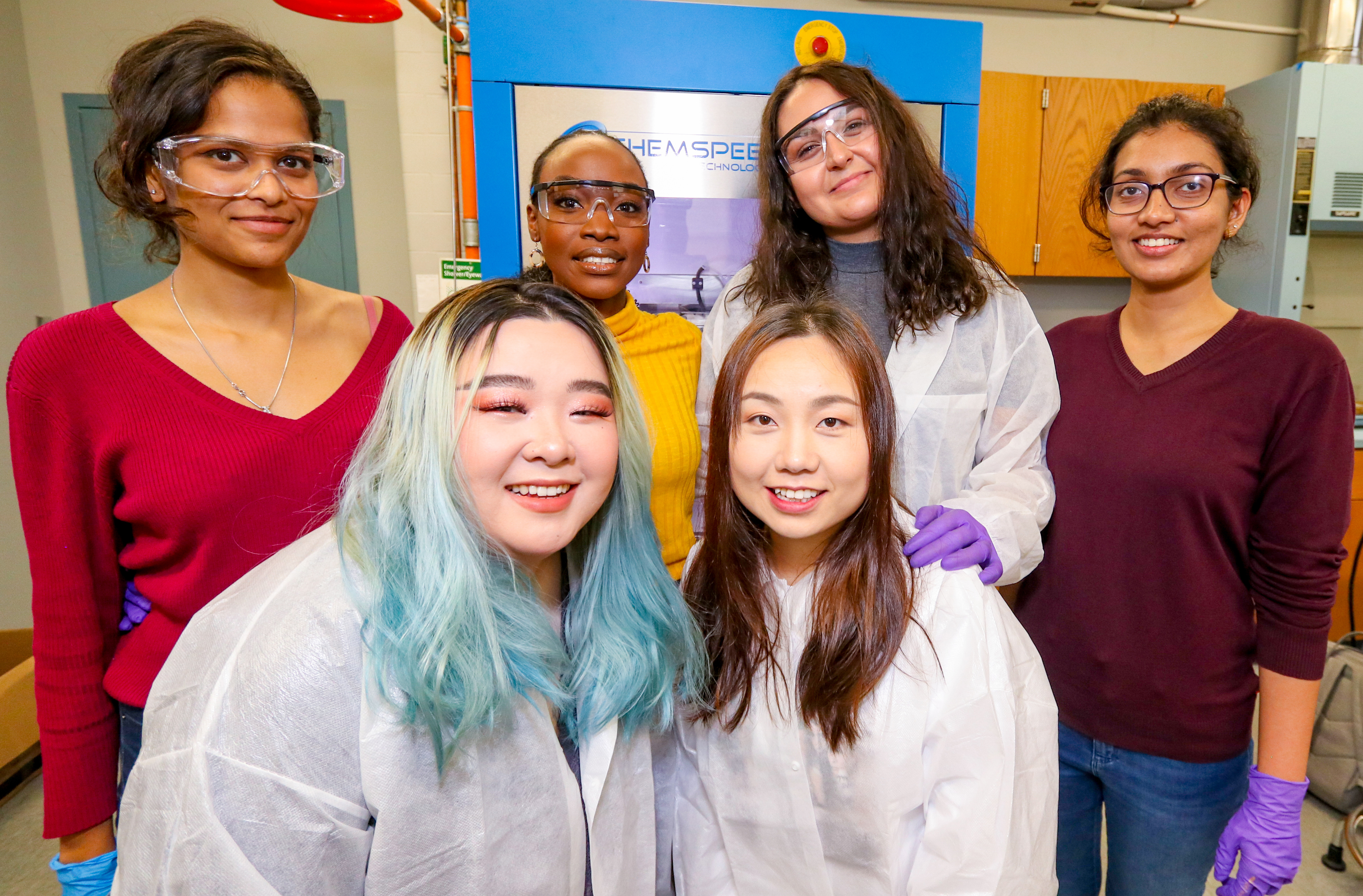The lab itself currently has the equipment and instrumentation necessary for cosmetic and biopharmaceutical engineering practices. For instance, the lab includes an automation formulation platform.
This type of equipment is generally not found in any academic or university labs, and thus attracts students from other institutions such as Columbia, Yale and Princeton.
“We are quickly becoming a global leader in cosmetic engineering, and our efforts are being recognized through multiple awards and grants,” Amin notes. Students in the program have earned a Society of Cosmetic Chemists student first place poster prize in 2018, an American Chemical Society 2020 Primarily Undergraduate Institution runner-up award, and a New York Society of Cosmetic Chemists education grant award, among many others.
Students Bring Different Backgrounds
Denice Xu ’19 (M.S.) described what she got out of the program through her work in the lab. “As a grad student, you’re supposed to learn on your own and combine with your own research, so there were a lot of great ideas that were generated just within the classes and it was really fun for me personally,” she notes.
Xu was also given the opportunity to publish her research in the Journal of Cosmetic Science, and she additionally presented her findings at the International Technology Showcase last year, where she was awarded first prize for her project.
Katie Liu ’15, ’18 (M.S.), another graduate of the cosmetic engineering graduate program, details how the interpersonal relationships between students and professors is especially beneficial with regard to this particular kind of engineering. “Whenever you have questions, you can just pop into a professor’s office and ask them. We saw them as friends rather than professors,” Liu remembers.
Aina Davies ’20 (M.S.), was a professional makeup artist before beginning the cosmetic graduate program. In the future, she hopes to combine these interests to discover her true interests.